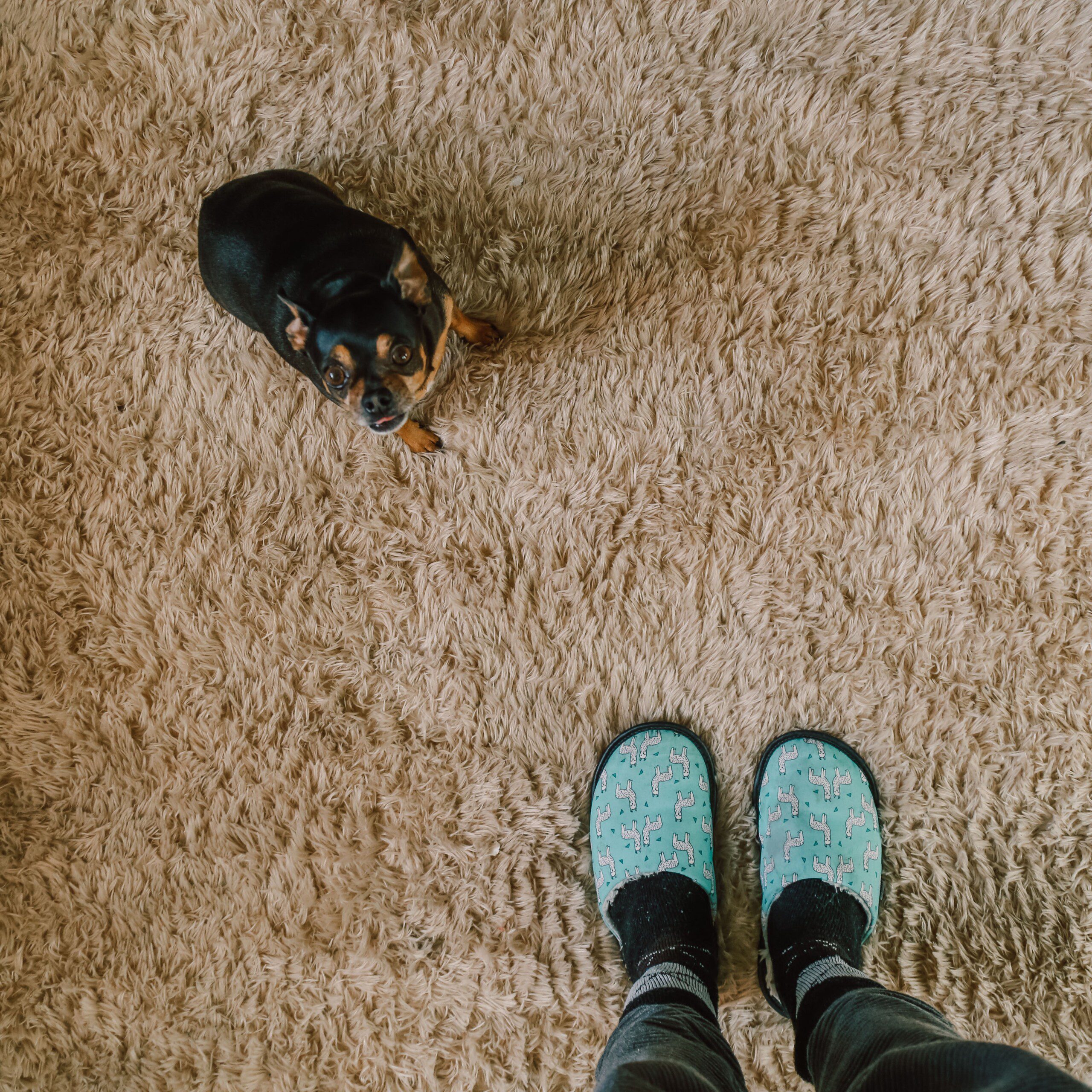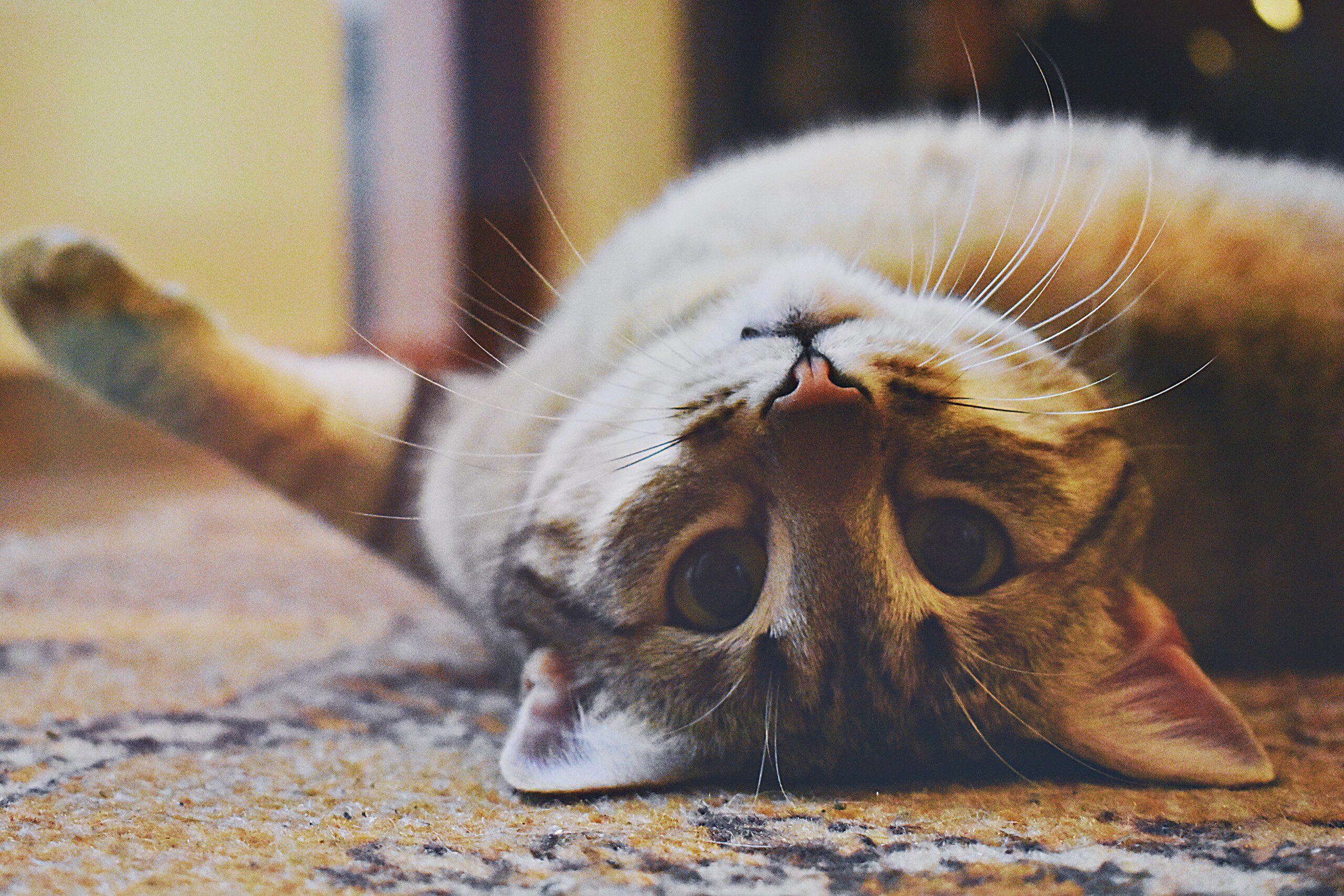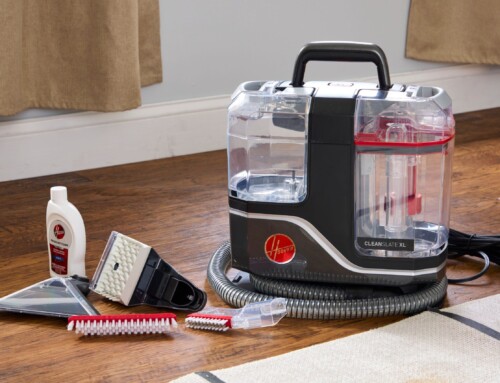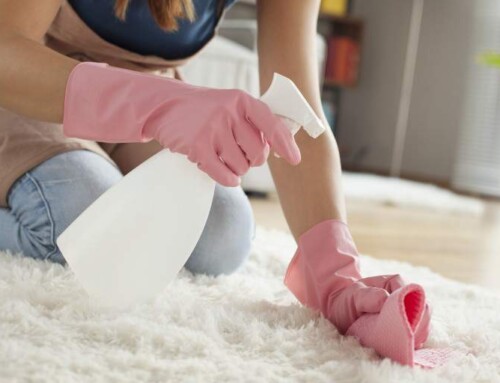Cat and dog enzyme carpet cleaners are specially formulated products designed to remove and eliminate stains and odors caused by pet urine, feces, vomit, and other organic substances. These Cat and dog enzyme carpet cleaners work by utilizing enzymes that break down the organic compounds responsible for unpleasant smells and stains. We especially use them on a daily basis for cleaning dog urine from carpet and upholstery.
- Enzymes are biological molecules that act as catalysts, speeding up chemical reactions without being consumed themselves. In the case of enzyme cleaners, the enzymes used are typically derived from bacteria or fungi and are specifically selected for their ability to target and break down organic matter.
- When a pet accident occurs, the organic compounds in urine or feces, such as proteins and urea, can penetrate deep into porous surfaces like carpets, upholstery, or hardwood floors. Traditional cleaning methods may not effectively remove these compounds, leading to lingering odors and stains.
- Cat and dog enzyme carpet cleaners contain specific enzymes, such as proteases, amylases, and lipases, that target different organic substances. Proteases break down proteins, amylases break down carbohydrates, and lipases break down fats and oils. These enzymes work by breaking apart the chemical bonds in the organic compounds, effectively breaking them down into smaller, simpler molecules.
- To use an enzyme cleaner, you typically apply it directly to the affected area and allow it to soak for some time. The enzymes in the cleaner then start working, breaking down the organic matter and eliminating the source of the odor. After the recommended soaking time, you can blot or rinse the area to remove the cleaner along with the broken-down organic residue.
- It’s important to note that enzyme cleaners require time to work effectively. They need to remain damp and in contact with the organic matter for an extended period to allow the enzymes to break down the compounds completely. Additionally, enzyme cleaners are designed for specific types of stains, so it’s crucial to choose a product formulated for cat or dog urine, feces, or vomit, depending on the situation.
Overall, cat and dog enzyme cleaners are effective tools for removing pet stains and odors because they utilize enzymes to break down and eliminate the organic compounds responsible for unwanted smells.
Cleaning dog or cat urine from a carpet immediately is essential for several reasons:
- Prevents Stains: Most spills, such as coffee, wine, or food stains, have pigments that can quickly penetrate carpet fibers and leave permanent marks. Promptly cleaning dog urine from carpet for example reduces the chances of permanent staining, making it easier to remove the bacteria entirely.
- Minimizes Odors: Certain spills, like pet urine or spoiled food, can generate unpleasant odors when left untreated. If not addressed promptly, these odors can seep into the carpet fibers and linger, making it harder to eliminate the smell.
- Avoids Damage to Carpet Fibers: Many substances, such as acidic liquids or dyes, can damage carpet fibers if left for too long. They can weaken or discolor the fibers, leading to a visible deterioration in the carpet’s appearance. By acting swiftly, you can minimize the chances of long-term damage and preserve the carpet’s integrity.
- Prevents Mold and Mildew Growth: When spills are left unattended, moisture can seep into the carpet padding and create an ideal environment for mold and mildew to grow. These microorganisms thrive in damp conditions and can cause health issues, emit unpleasant odors, and damage the carpet and surrounding structures. Cleaning the spill promptly helps to prevent mold and mildew growth.
- Maintains Cleanliness and Hygiene: Carpets are prone to accumulating dirt, debris, and allergens, even without spills. When a spill occurs, it introduces additional contaminants into the carpet, which can worsen indoor air quality and affect the cleanliness of your living or working environment. Swiftly cleaning spills helps maintain a hygienic and fresh indoor space.
- Prolongs Carpet Lifespan: Regularly cleaning and maintaining your carpet, including addressing spills promptly, can extend its lifespan. By preventing stains, damage, and mold growth, you reduce the need for costly repairs or premature carpet replacement, saving you time and money in the long run.
In summary, cleaning a spill from a carpet immediately is crucial to prevent stains, minimize odors, avoid damage to carpet fibers, prevent mold and mildew growth, maintain cleanliness and hygiene, and prolong the carpet’s lifespan. Taking prompt action can help preserve the appearance, quality, and longevity of your carpet. If this is out of your comfort level consider hiring a professional carpet cleaning service for the job.
To prevent a cat or dog from urinating in the same place repeatedly, you can try the following strategies:
- Clean the area thoroughly with an enzymatic cleaner specifically designed to clean dog urine from carpet and eliminate pet odors. Regular household cleaners may not be effective at removing the scent completely, and animals may return to the same spot.
- Block access to the area: If possible, restrict your pet’s access to the area where they have been urinating. Use baby gates or other barriers to prevent them from reaching the spot.
- Create a new designated toileting area: Encourage your pet to use a specific spot for elimination by creating a new designated toileting area. This can be done by providing a litter box for cats or a designated outdoor spot for dogs.
- Increase litter box cleanliness: If you have a cat, make sure the litter box is kept clean at all times. Scoop it daily and change the litter frequently. Cats are generally clean animals, and they may avoid using a dirty litter box.
- Provide regular outdoor bathroom breaks: For dogs, make sure you take them outside for regular bathroom breaks. A consistent routine helps them establish a regular schedule and decreases the likelihood of accidents indoors.
- Use deterrents: Certain scents and deterrents can discourage pets from urinating in specific areas. For example, cats are usually repelled by citrus scents, so placing orange peels or using citrus-scented sprays in the problem area may discourage them. There are also pet-safe repellent sprays available specifically designed to discourage animals from urinating in unwanted areas.
- Address underlying medical issues: If your pet continues to urinate in the same spot despite your efforts, it’s essential to rule out any underlying medical conditions. Urinary tract infections, bladder stones, or other health problems could be contributing to their behavior. Consult with a veterinarian to evaluate your pet’s health.
- Seek professional help: In cases where the problem persists or if your pet has developed a habit, consider consulting with a professional animal behaviorist or trainer. They can provide personalized advice and strategies to modify your pet’s behavior effectively.
Remember, consistency, patience, and positive reinforcement are key when training pets. By implementing these strategies and addressing any underlying issues, you can help discourage your cat or dog from urinating in the same place repeatedly.









Leave A Comment